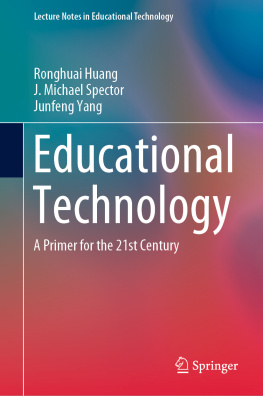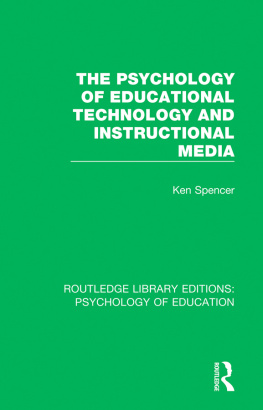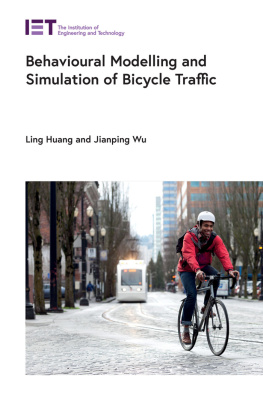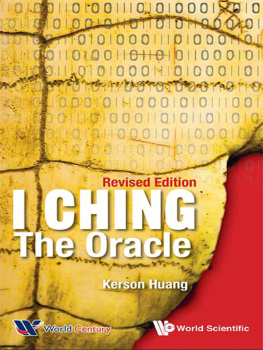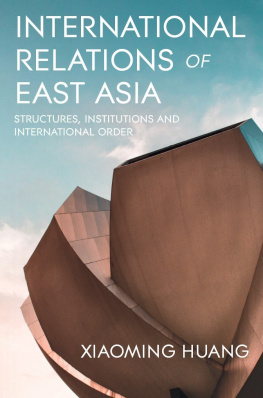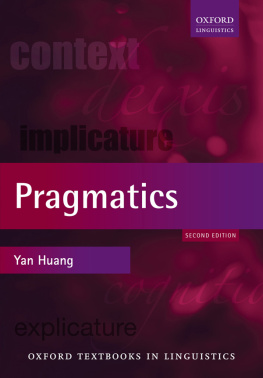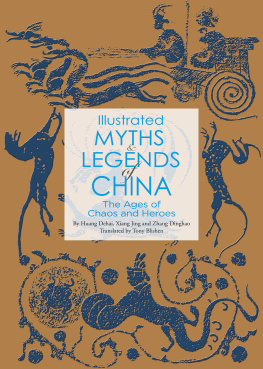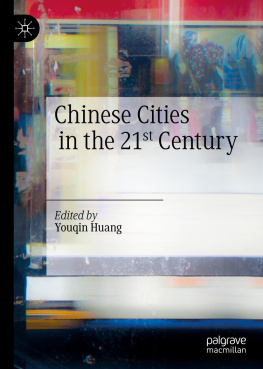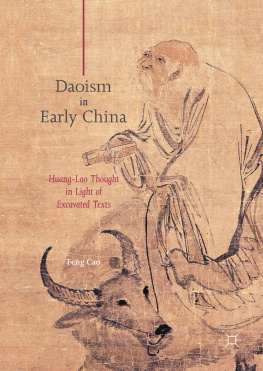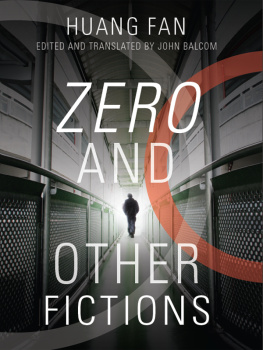Ronghuai Huang - Educational Technology
Here you can read online Ronghuai Huang - Educational Technology full text of the book (entire story) in english for free. Download pdf and epub, get meaning, cover and reviews about this ebook. year: 0, publisher: Springer Singapore, genre: Romance novel. Description of the work, (preface) as well as reviews are available. Best literature library LitArk.com created for fans of good reading and offers a wide selection of genres:
Romance novel
Science fiction
Adventure
Detective
Science
History
Home and family
Prose
Art
Politics
Computer
Non-fiction
Religion
Business
Children
Humor
Choose a favorite category and find really read worthwhile books. Enjoy immersion in the world of imagination, feel the emotions of the characters or learn something new for yourself, make an fascinating discovery.
- Book:Educational Technology
- Author:
- Publisher:Springer Singapore
- Genre:
- Year:0
- Rating:5 / 5
- Favourites:Add to favourites
- Your mark:
- 100
- 1
- 2
- 3
- 4
- 5
Educational Technology: summary, description and annotation
We offer to read an annotation, description, summary or preface (depends on what the author of the book "Educational Technology" wrote himself). If you haven't found the necessary information about the book — write in the comments, we will try to find it.
Educational Technology — read online for free the complete book (whole text) full work
Below is the text of the book, divided by pages. System saving the place of the last page read, allows you to conveniently read the book "Educational Technology" online for free, without having to search again every time where you left off. Put a bookmark, and you can go to the page where you finished reading at any time.
Font size:
Interval:
Bookmark:
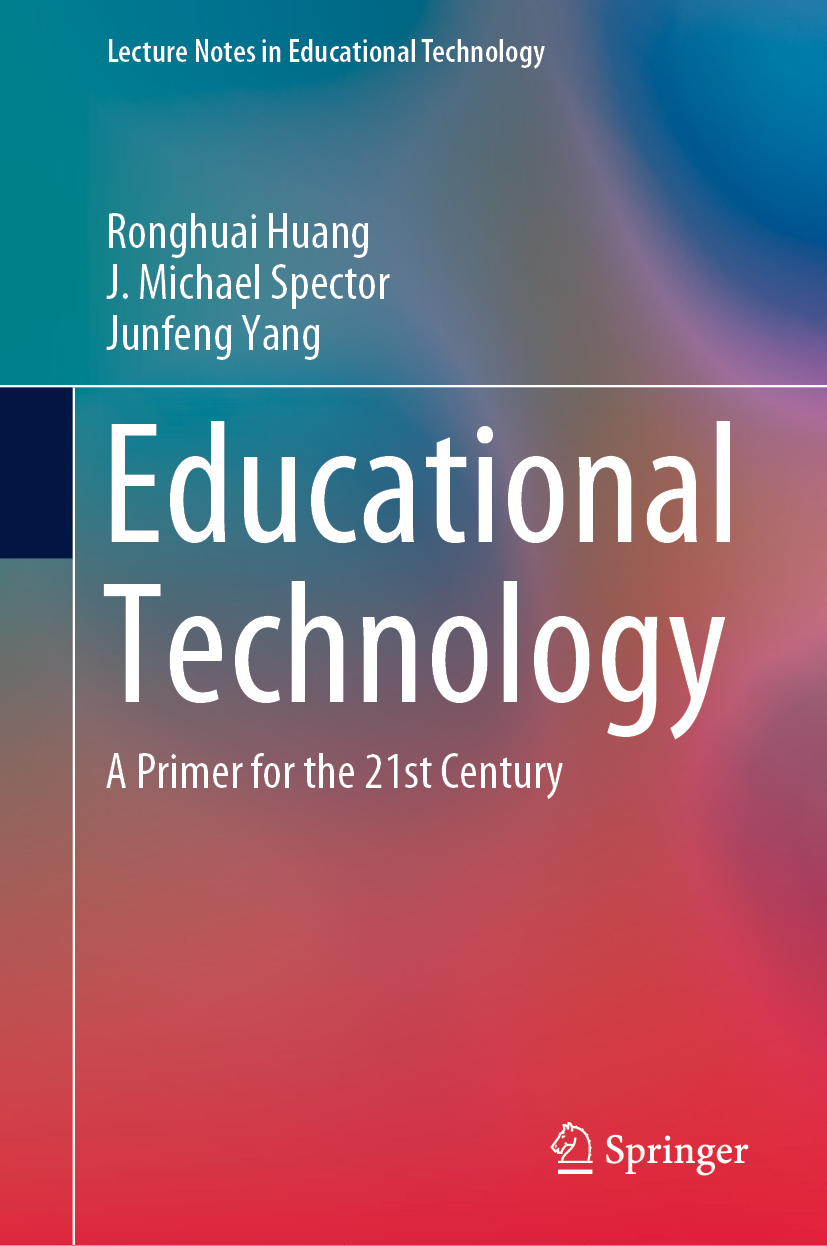
The series Lecture Notes in Educational Technology (LNET), has established itself as a medium for the publication of new developments in the research and practice of educational policy, pedagogy, learning science, learning environment, learning resources etc. in information and knowledge age, quickly, informally, and at a high level.
Abstracted/Indexed in:
Scopus, Web of Science Book Citation Index
More information about this series at http://www.springer.com/series/11777

This Springer imprint is published by the registered company Springer Nature Singapore Pte Ltd.
The registered company address is: 152 Beach Road, #21-01/04 Gateway East, Singapore 189721, Singapore
Educational technology is the study and ethical practice of facilitating learning and improving performance by creating, using, and managing appropriate technological processes and resources. From the perspective of technology used in education, educational technology could be understood as the use of emerging and existing technologies to improve learning experiences in a variety of instructional settings, such as formal learning, informal learning, non-formal learning, lifelong learning, learning on demand, and just-in-time learning. Educational technology approaches have evolved from early uses of audiovisual aids to individual and networked computers, and now have evolved to include various mobile and smart technologies, as well as virtual and augmented realities, avatar-based immersive environments, cloud computing, and wearable and location-aware devices. Various terms have been used along the way to refer to educational technologies, such as learning technologies/environments and instructional technologies/systems. We have embraced a broad interpretation in this book to cover instructional design approaches, learning strategies, and hardware and software. Our view is that anything that consistently can support learning and instruction can be considered an educational technology. Some educational technologies are simple and have existed for many years; others are complex, and new ones are finding their way into educational settings every day.
Educational technology focuses on both the technical and pedagogical ways and means of supporting learning and instruction. It is the basis for the success of the e-learning revolution in recent years. Technology-based instruction can surpass traditional classroom-based instruction in quality by providing a wide variety of affordances and capabilities that can promote motivation and result in engaging, efficient, and effective learning.
The demand for educational technologies has been rising steadily; e-learning is a huge and expanding worldwide industry. Commercial e-learning companies, training departments in large companies and organizations, computer software companies, and educational institutions over the world employ large numbers of specialists in various aspects of educational technology creation (programming, graphic design, instructional design, task analysis, usability engineering, subject matter analysis, editing, etc.). However, these organizations often find it hard to employ suitably qualified workers who have knowledge beyond their subfields and disciplines. There is a strong demand for technologists who understand learning theories and for instructional designers and educators who understand technologies and how to effectively integrate technology into learning and instruction. The field of educational technology is becoming part of major educational programs in institutions worldwide. The commercial training industry is large and still going through a period of rapid and sustained growth, based in large part on the integration of advanced digital technologies.
The needs and requirements of the various organizations, both educational and commercial, vary widely in terms of the knowledge and skills needed to implement educational technology solutions effectively. Further complexity comes from the fact that potential students of educational technology exist at different levels and in a variety of contexts; potential students come from a variety of backgrounds, ranging from education, computing, engineering, design, arts, the humanities, finance, and the natural sciences. Their interests and expectations vary as widely as their aspirations toward what kind of organizations they would like to serve after their studies. The aim of this book is to prepare students with the knowledge and skills to understand the organizational needs and requirements, and not only use and manage existing and emerging technologies effectively, to be able to apply associated pedagogies and instructional strategies appropriately and effectively, to evaluate and manage educational technology solutions, and to foresee and prepare for future possibilities.
This book is targeted toward readers who are interested in educational technology and would like to understand educational technology from different perspectives. Specifically, this book could be used as textbook for two types of undergraduate students: (a) those who are looking for careers in educational technology, instructional design, or media and information systems, or may want to continue their studies in graduate programs in learning and instructional technology and (b) those who are interested in becoming teachers in K-12 settings or trainers in industry and who need a strong background in educational technology. This book will also act as a valuable resource in teacher education programs where the primary focus on mainstream education requires an authentic resource in instructional design and educational technology.
Font size:
Interval:
Bookmark:
Similar books «Educational Technology»
Look at similar books to Educational Technology. We have selected literature similar in name and meaning in the hope of providing readers with more options to find new, interesting, not yet read works.
Discussion, reviews of the book Educational Technology and just readers' own opinions. Leave your comments, write what you think about the work, its meaning or the main characters. Specify what exactly you liked and what you didn't like, and why you think so.

